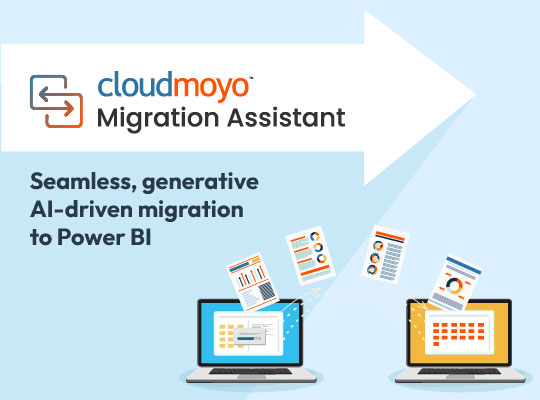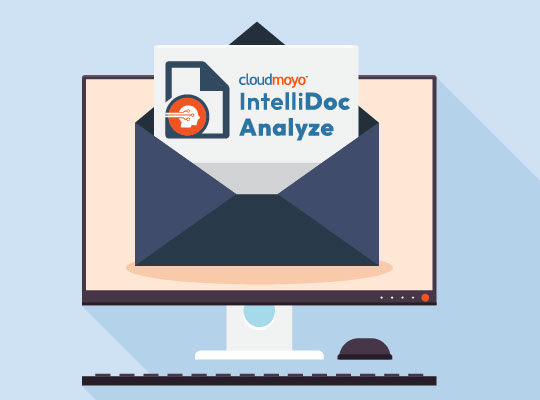Introduction
The manufacturing industry today is dealing with various challenges. Uncertain shutdowns, increasing manufacturing costs, complexities in the supply chain, and machine operations and logistics are providing complications that must be addressed. These challenges highlight the need for a solution to analyze the various types and large volumes of data that companies amass, and visualize it in such a way that issues, trends, and opportunities can be readily identified.
The good news is, business intelligence (BI) tools like Microsoft Power BI have the potential to solve many of these issues associated with the manufacturing sector. Power BI offers opportunities in multiple avenues to improve operations, including identifying top adopting trends and recognizing patterns for more accurate forecasting.
What is Microsoft Power BI?
Power BI is a suite of business analytics and data visualization tools offered by Microsoft. These cloud-based, self-service tools offer critical insights to business owners to assist them in making data-driven decisions. Businesses in the manufacturing industry can leverage Power BI for sourcing, compiling, transforming, and modeling data from cloud-based or on-premise data warehouses. The Power BI dashboard provides intuitive and interactive reports using the sourced data, making it easy to comprehend and share.
Digital transformations in the manufacturing industry
The manufacturing industry today stands apart in its drive towards digital transformation through the use of Power BI. Modern data analysis technologies and strategies have created immense opportunities to move away from the traditional manual approach and automate key processes to understand which KPIs are influencing business revenue and profit.
With this in mind, digital transformation—enabled by BI—has resulted in improved efficiency, productivity, profitability for manufacturing businesses. By allowing innovation it has also reduced the costs of business data-processing efforts. The clear impacts on business productivity have helped in the making of faster, data-driven decisions in order to better position companies to compete in today’s digital economy.
In this article, we will discuss in detail what benefits modern and advanced analytics techniques have provided to the manufacturing sector.
How Power BI helps the manufacturing industry
At a high level, Power BI can help you visualize your business data, monitor overall performance, and make well-informed business decisions with critical KPIs derived from multiple data sources. Power BI dashboards allow you to generate report metrics such as trends per products, production volumes, and underperforming products. It can also integrate the visual metrics in Power BI with other solutions such as ERP systems.
A Power BI dashboard shows a significant connectivity with third-party systems while forecasting important trends. On the finance side of the business, users can view information for a current financial situation within a specific date range through real-time financial reports.
1. Automated reports
Having a large amount of unprocessed data is as bad as not having enough data during your decision-making process. How can you take that data and process and understand it correctly in your reporting processes? With Power BI, an organization can fully automate a company’s reporting needs to be done every week, hour, month, or yearly. This also allows you to filter your reports to as much you need it, allowing you to send specific insights for different recipients from a single dashboard without overwhelming them. You can prepare reports such as production performance analysis, trend analysis, comparisons for budgeted and actual volumes, sales forecasts, maintenance updates and production trackers. All you will need to do is tell your Power BI robots what information you need and when you need it. In this way, automated reporting can be an effective way of sharing insightful information to the right people at the right time.
2. Predictive analytics
Predictive analytics holds significant value and has the potential to deliver great insights to manufacturing professionals. Because of this, many organizations in this sector are working hard to leverage analytics. The amount of data to be stored by organizations is increasing every minute, but beyond the collection or storage of the data lies the real challenge. It is to make good use of the stored data and process it to obtain insightful information that can be used for operational functions enabling a better decision- making process.
Adoption of a BI and analytics strategy enables manufacturing organizations to get timely and agile visibility through the production lifecycle, as well as drive flexibility in a fast-paced market. Power BI brings the predictive power of advanced analytic capabilities including predictive analytics, data visualizations, integration, and data analysis expressions to allow users get better results.
Power BI also helps an organization obtain insights into the daily business decision process of manufacturing companies by allowing users to get useful information from stored data to solve business issues. Users can create samples of predictive analytics from existing data, in order to enable organizations to make data-driven decisions of their business.
What areas of the business can benefit from Power BI
1. Inventory management
Power BI allows you to track and reduce inventory costs across various locations and time, as well as keep a track of overall turnover rates, product margins, and defective inventory. This will help you in inventory prediction and forecasting for production needs. It also provides insights into your vendor and inventory business processes, as Power BI dashboards capture key metrics such as deliveries, stock returns, and stock-outs of the vendors’ side for inventory analysis.
Power BI helps streamline inventory and hardware management to prevent aging inventory and ensure the right quantity of products and materials are in stock. It enables you to monitor inventory levels in various warehouses and sales channels using automated reports. Power BI dashboards then give you a detailed analysis of, and valuable insights into, inventory management.
2. Quality assurance
When considering quality assurance in BI, we can make test plans, cases, and issues particularly related to bottlenecks, like the Extraction, Transfer and Loading (ETL) data processes. QA and developers must be very well aware of the process, test plans, and cases. It must be created to validate and ensure accuracy of ETL process at all stages of a project lifecycle.
Product quality can have a severe impact on customer retention and satisfaction strategies. The reality is that you can’t really depend on manual resources and traditional technical resources to ensure good products are made. Even having full visibility into the key areas that affect the quality of products. Using in-depth analysis of all production and QA processes, Power BI can make it real simple to know the vital patterns and factors responsible for product quality so that uncertain issues can be taken care of.
3. Financial management
Power BI is widely used to create budgets associated with the production, operation, sales, fulfilment, and finance figures for optimal forecasting and planning, and to get an exact understanding of the ROI from each stage in the project life cycle. It allows you to perform a cost-benefit analysis for managing production costs using multiple information sources. It also helps streamline the business operations by monitoring processes.
With a complete analysis of demand and supply, BI can control business value more efficiently. It can reduce losses and improve profit margins for a manufacturer who focuses on both external profit-building and internal cost reductions.
Harness your data in less time with automated Power BI dashboards
Though Excel has traditionally been the most popular reporting tool for manufacturing businesses, Power BI offers more powerful analytics and reporting features leveraging near real-time data, available for even non-technical users in the manufacturing industry.
Data analysis expressions (DAX) are one the features that Power BI offers. These functions will help you get the most value out of your visualizations and charts, helping you find and solve real business issues. Simply using DAX language functions allows manufacturers to get new insights and new information from existing data. With this, they can analyze growth for different ranges and categories for any product for the manufacturing sector.
With DAX, Power BI offers an extension to Excel with functions similar to Excel formulas. But these functions are capable of solving formatting issues faced while using Excel. With faster visualizations, and strategic functions and calculations across datasets, DAX provides the ability to obtain answers on-the-go and delivers far greater insight than Excel can.
Power BI tools help decision-makers to visualize, analyze, and share large volumes of data collected from multiple data sources in order to get more powerful insights to make informed business decisions. It also enables them to collect and share insights extracted from the data sets with other departments of their own organizations. Power BI tools perform risk-free analysis while addressing critical issues like resources, shifts, locations, suppliers, and other factors that affect manufacturing processes.
Wrapping up
The manufacturing industry is dealing with various challenges in the current pandemic situation. Uncertain shutdowns, increasing manufacturing costs, issues associated with supply chain, machine operations, and logistics are making the path harder for the businesses.
Power BI has the potential to solve many issues associated with your operations. Power BI offers opportunities in multiple avenues to improve operations including identifying the top adopting trends and recognizing patterns for more accurate forecasting.
How CloudMoyo can help with your Power BI strategy
Along with bringing core competencies in Azure cloud and analytics, CloudMoyo can help manufacturers adopt digital strategies, compete in the market, and leverage advanced analytics capabilities to make informed and smart future predictions. With our Intelligent Data Services (IDS), organizations are equipped with the expertise and vision to run their operations smoothly, providing user-friendly, real-time dashboards and data analyzation tools. This results in expanded productivity and flexibility across all processes.



















